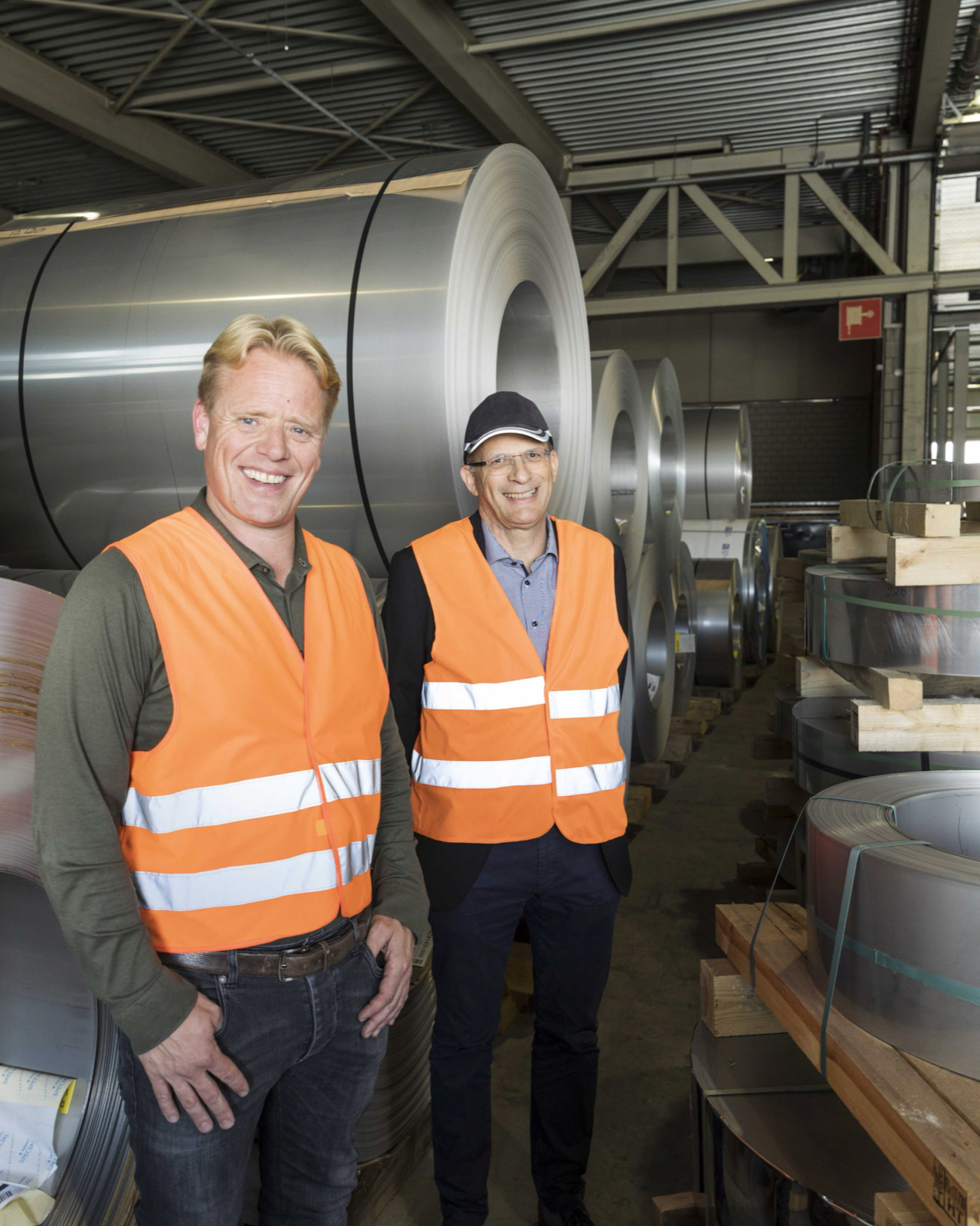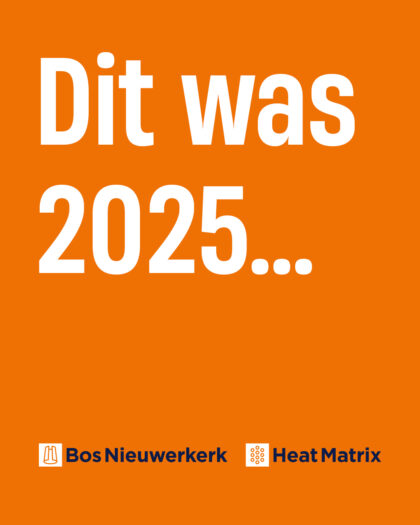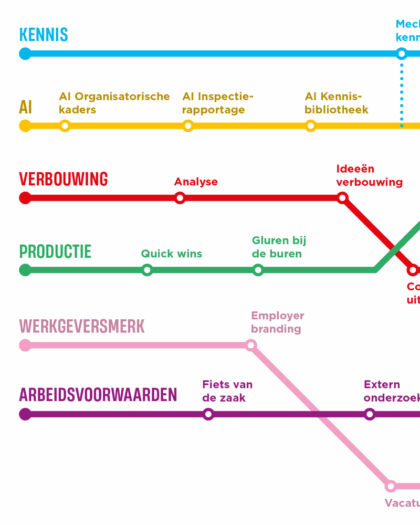We don’t measure clients by size, but by loyalty
As a member of the third generation, Paul Cohn leads Roba Metals—the company founded by both his grandfathers in 1937. But he doesn’t consider himself particularly interesting, and rarely steps into the spotlight. That he’s making an exception for us is the icing on the cake of our twenty-year relationship.

Paul Cohn (right), with Richard Gouderjaan, Commercial Director Stainless Steel Benelux, in the foreground
*“Family businesses are quite the trend these days, so I’d like to put that into perspective. Yes, we are a family business, but more importantly, we are a group of people who share values that are often associated with family-owned companies. For instance, we care about our people—they’re the ones who make the difference. Being a good employer means showing them appreciation. We also value long-term relationships with employees, clients, and suppliers. Because we’re privately owned, we look beyond the next quarter. Profit isn’t our goal; it’s a means to achieve growth. And in another way, we’re a family business simply because many of our colleagues are family to each other.”*
“A family business sees profit not as a goal, but as a means for growth.”
Does Roba Metals prefer to work with other family businesses—or with companies that share similar values?
“You can’t always choose your clients and suppliers. If you want to source stainless steel, you’ll end up working with publicly listed companies. But even then, there are differences—just as there are between family firms. It really depends on the people you’re dealing with. That said, we do feel more at ease with companies that share our values. We prefer speaking with people who feel connected to ‘their’ company. That can be the owner, but just as often it’s a committed purchaser. Bos Nieuwerkerk is one of those companies.”
Roba Metals has grown tremendously over three generations. With 750 employees and 12 sites in seven countries—can you still maintain a family business culture?
“Yes—by hiring people who match our philosophy. They need to translate our values into behaviour, whether toward colleagues, clients, or suppliers. As an organisation, you lead by example, and you create a way of working that matches your culture. Here, people are entrepreneurs within the company. They’re free to make their own decisions. People coming from large corporations often need time to adjust to that level of freedom. Protocols will get you far—but they also stifle creativity. And that’s not what we want.”
“We believe in honouring relationships—in good times and bad.”
Roba Metals supported Bos Nieuwerkerk in a difficult time. What happened?
“In late 2013, our credit insurer informed us they would no longer cover payments from Bos Nieuwerkerk. So Richard Gouderjaan, our sales manager, and I went to speak with Martine Goedegebuure. We asked her: Can you pay us—and will you let us know in time if that changes? Martine said yes. We trusted her and kept delivering. Bos Nieuwerkerk had had a tough year, but there was no cause for alarm—and it showed. They never missed a single payment. We believe in honouring relationships—in both prosperity and adversity. Sometimes that backfires. But if you never take risks, you’ll never move forward.”
Even if the occasion isn’t pleasant, are those kinds of conversations still rewarding?
“Yes, absolutely. In this age of legal formalities and over-professionalisation, it’s refreshing to talk entrepreneur-to-entrepreneur. That kind of personal interaction lays the foundation for mutual trust. Clients sometimes ask if they’re one of our big accounts. And we’ll say: we don’t measure by size—we measure by loyalty. You’re a loyal customer, and we value that deeply. So despite all the modern communication tools, we still place great value on face-to-face contact. Our younger generation does that less. They’re so used to messaging and emailing that we sometimes remind them: a phone call or visit might just be a better option. Because personal contact still matters.”
What do you see in the future?
“We want to remain independent. That’s the best and most enjoyable path for everyone here—because it allows us to chart our own course. But that means finding people who can lead and who want to continue the company. My niece has been with us for ten years. My son started in Belgium a year and a half ago. A company is the sum of capable people. Putting them in the right place—that’s the mark of good leadership.”
The full chain
Roba Metals—originally founded as Roba Metallurgische Handelsmaatschappij—began as a scrap metal trader. Today, with operations in five European countries and Korea, the company manages the entire chain: from purchasing and processing various metals, to sales and logistics. This means the same piece of metal might pass through Roba Metals multiple times. For example, a sheet of aluminium sold to a client may be cut and shaped, creating scrap. Roba Metals then buys back that scrap—to either resell to smelters or remelt it themselves into new sheet material. And with that, the circle is complete.


